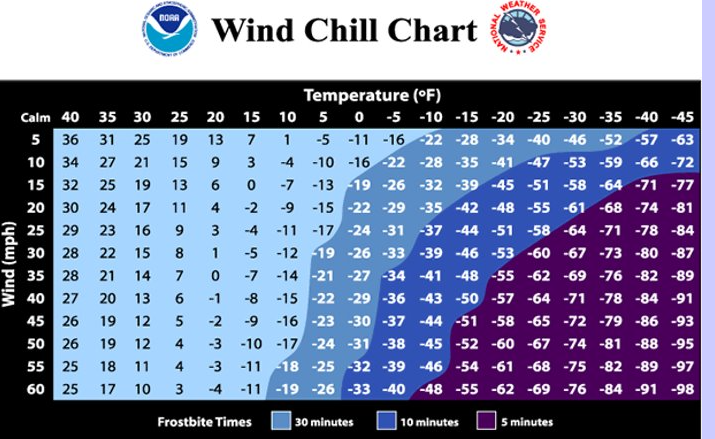Hypothermia
1/6
There's no tags or description
Looks like no tags are added yet.
Name | Mastery | Learn | Test | Matching | Spaced |
|---|
No study sessions yet.
7 Terms
Hypothermia
Definition
When it happens
What it affects
Symptoms
3 Stages
Definition
Decrease in body heat to the point where normal muscle and brain functions are impaired.
When the body loses heat faster than it can produce it.
When
Mild cool, wet climates. Usually after hard physical work.
Affects
Brain. Victims are unable to think clearly or move well.
Symptoms
Early symptoms: Shivering, fatigue, loss of coordination, and confusion.
Late symptoms: No shivering, blue skin, dilated pupils, slow pulse and breathing, and loss of consciousness.
Stages
Mild
Moderate
Severe
Frostbite
Definition
When it happens
What it affects
Symptoms
Definition
A loss of feeling and color in affected areas.
When
Temperatures fall below the freezing point.
Extremely cold temperatures and contact with extremely cold objects.
Affects
Body parts like ears, face, fingers, and toes.
Symptoms
Mild: Inflamed skin, slightly painful.
Severe: Tissue damage without pain, burning, or prickling sensations, blisters, gangrene
How to avoid these (precautions)
Wear warm head covering and clothing.
Protect feet and hands.
Drink plenty of fluids.
Pace yourself during activities in the cold.
Move to warm locations if very cold.
Acclimatation
Harder to adapt to cold environments than hot ones.
Effects of cold on the human body
Low body temperature
Constant shivering
Blue lips and fingers
Confused and crazy
Reduced mental alertness
Poor coordination
Poor decision-making
Cooling of tissues that result in injuries to the exposed parts.
Reduced blood flow to the extremities in order to keep organs warm.
Bad things to do as precautions
Drinking is bad.
The alcohol will warm you up initially by dilating your blood vessels but will ultimately cause you to lose body heat = Potential hypothermia.
Wearing tight clothing
Restricts your blood flow and can make you colder.
Not eating or drinking enough.
Not moving around.
Using direct heat sources like heating pads to numb areas can cause burns because you’re unable to feel the area.

Wind Chill Chart
What it measures
How it works
Measures
Estimates the temperature a human would feel.
How
It considers wind, which when increased, makes it feel colder than the actual air temperature.
It considers the actual temperature.
The combination of these two estimate the equivalent temperature.
As you move right on the chart, it takes less time for you to experience frostbite.
Cold Water Hypothermia
Body heat loss is 25 times faster in water than in cold air
Swimming increases heat loss by 35%
In 50F, 50% of death within 30 minutes.
In Titanic, people got hypothermia within 15min and died within 30 min.